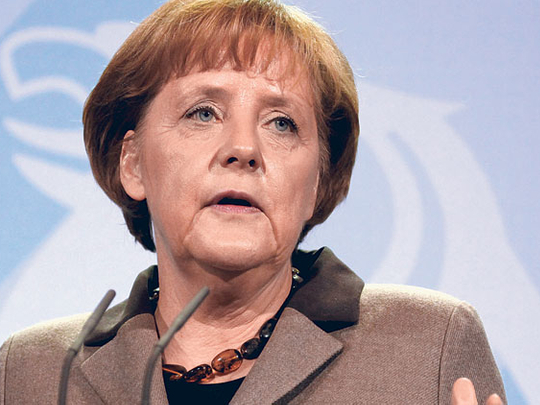
Twenty years ago this week the Berlin Wall came tumbling down. Such a momentous and historic event seems lost in comparison with that simple, stark sentence. What changed was that the German people, divided for nearly four decades in the Cold War fallout of the Second World War, were once again unified.
Berlin, belonging to the West yet surrounded by barbed wire, border guards with orders to shoot to kill, and isolated in the north German plain by divisions of Soviet tanks and troops, was again part of a single nation. The East, a bastion of Stalinist-era Communist ideology, paranoia and political subversion of its 18 million residents, now free to mingle openly with the liberal westerners.
In the two decades since reunification, let us remember that Germany became a single proud and strong nation without a shot being fired, in part due to the orders from Comrade Gorbachev in Moscow not to act.
Over the past two decades, despite the huge costs of rebuilding and modernising the East's rudimentary Stalinist infrastructure, Germany has maintained its position as the leading economic power of Europe, a pillar of democracy and a foundation of the European Central Bank and the Eurozone.
And 20 years ago, Angela Merkel, then a scientist working in state-controlled laboratories, dreamed of visiting the US when she retired. Instead, after the Wall came down, she became a politician, eventually rising to the highest office in the land and becoming the most powerful woman in the world.
Above all, the unification of Germany shows the enduring power of people who can work together.
From division came unity; from fences came friendship; from totalitarianism came individual rights; from fear, freedom. There is a lesson here for us all: There is hope for places like the Korean peninsula, the Middle East, Iraq and Afghanistan.








